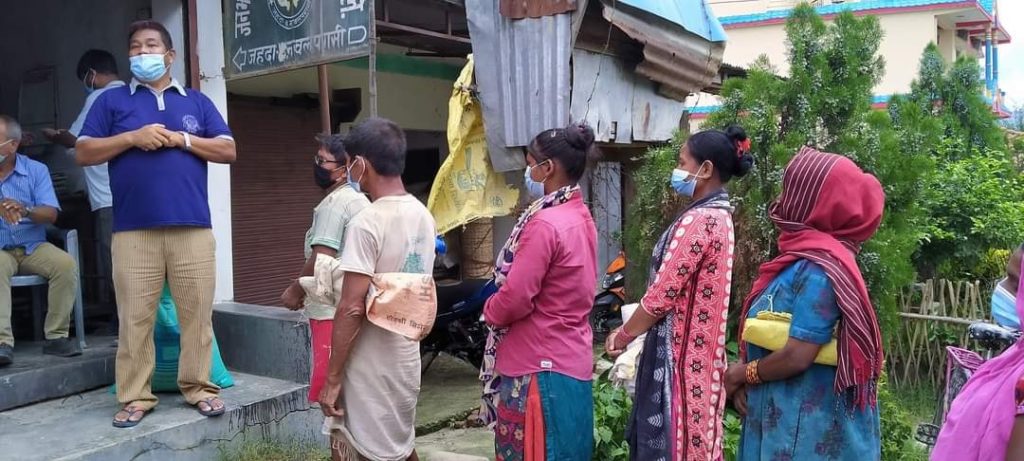COVID RELIEF
The COVID-19 pandemic has caused prolonged disruption in schools, work, and community-building activities. Adults who lost their livelihoods are struggling to put food on the table. Children, most of whom do not have computer and internet access, risk falling behind as online learning is impossible for them. While schools have started reopening, the lengthy school closures and interrupted learning have adversely affected children by depriving them of opportunities for growth and development. Without immediate relief and sustainable recovery efforts now, it may take years to overcome the long-term consequences of the pandemic, pushing more people at risk of hunger and extreme poverty. The World Bank estimates that the COVID-19 pandemic will push 40–60 million people into extreme poverty. Almost two years into the pandemic, poverty rates in South Asia continue to increase. Experts expect COVID-19 to erase much of the progress made in the past years, threatening chances of eradicating extreme global poverty by 2030. To combat this backsliding, READ Centers have sprung to action to help their communities where they need it most.
READ Centers as Crisis Response and Recovery Platforms
As the world continues to face challenges brought by the pandemic, READ is capitalizing on its experience responding to community needs. For instance, while there was an abundance of information about COVID-19 at the onset of the pandemic, most of it was in English and not readily available or accessible to some community members. READ staff and volunteers collected verified information from credible sources including the World Health Organization, UNICEF, and local health offices, which they then simplified and translated into their local languages. They also created and shared short videos about health practices on social media to reach those who have internet access.
To keep our programs flexible and responsive, READ Global’s Crisis Management Team has been working in close coordination with country affiliates and local READ Centers. In the spring of 2021, when COVID infections surged in South Asia, READ Centers rolled out crisis management plans, which include:
- continuing to conduct rapid, real-time assessments of local needs;
- distributing emergency supplies to families and individuals;
- helping local health facilities access urgently needed supplies such as PPE, thermometers, and drinking water;
disseminating accurate information about the pandemic and vaccines, countering the spread of misinformation and promoting vaccine confidence; and - creating emergency response structures to coordinate work among local stakeholders to ensure an efficient, coordinated response.
More up-to-date figures on READ’s response efforts can be found here.





